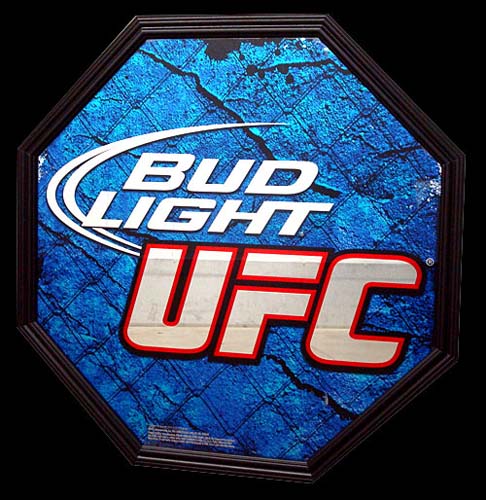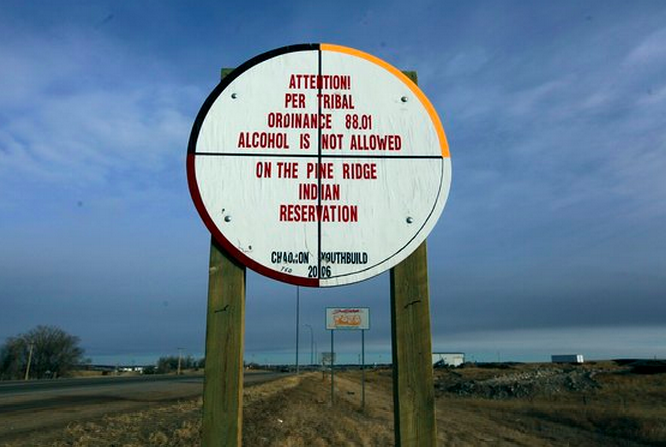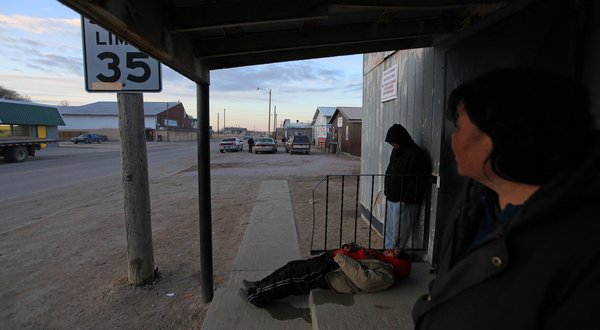Blog
Search
Blog
UFC Owners Attempt to Silence Alcohol Justice Critique on YouTube

In April 2012, Alcohol Justice posted a Big Alcohol Watchdog Video on our YouTube channel that severely criticized Anheuser-Busch InBev and the Ultimate Fighting Championship (UFC) for “exposing young, underage fans to extreme violence, bloodiness, sexually denigrating language and behavior,” and of course, inappropriate beer ads. Within two weeks, YouTube pulled our video down due to claims of copyright infringement made by ZUFFA, LLC (owners of the UFC) and another content provider called Machinima. These companies did not care for what we had to say, so they attempted to silence our legitimate right to critique their shameful behavior and harmful business practices.
F
 or their attempts to silence a legal voice of criticism, and continuing to expose young fans to inappropriate and harmful content, Machinima and ZUFFA, LLC have earned entry into the Alcohol Justice Doghouse. They are not alone. A-B InBev maintains a permanent residence there for aggressive sponsorship, advertising and branding practices that influence underage viewers to drink beer, drink more, and drink more often.
or their attempts to silence a legal voice of criticism, and continuing to expose young fans to inappropriate and harmful content, Machinima and ZUFFA, LLC have earned entry into the Alcohol Justice Doghouse. They are not alone. A-B InBev maintains a permanent residence there for aggressive sponsorship, advertising and branding practices that influence underage viewers to drink beer, drink more, and drink more often.Please click here to TAKE ACTION and tell A-B InBev executives to pull the plug on Bud Light’s UFC sponsorship.
Marin County Supervisors Support 1st Alcopop-Free Zone
 The Marin County Board of Supervisors took a bold first step last week toward protecting the county’s youth from alcopops. Supervisor Judy Arnold introduced the country’s first resolution of support encouraging alcohol retailers to voluntarily stop selling the dangerous, youth-oriented products. Supervisor Steve Kinsey co-authored the resolution, which supports the establishment of an Alcopop-Free ZoneTM in Marin County and encourages all 217 active off-sale liquor license holders in the county “to voluntarily stop buying, stocking, selling and marketing alcopops.” Bill Daniels, owner of San Rafael’s United Market, was the county’s first alcohol retailer to support the Alcopop-Free ZoneTM Marin campaign, and Andy Bachich, owner of Andy’s Local Market and Andy’s Sun Valley Market in San Rafael, pledged his support in person at the hearing on May 8.
The Marin County Board of Supervisors took a bold first step last week toward protecting the county’s youth from alcopops. Supervisor Judy Arnold introduced the country’s first resolution of support encouraging alcohol retailers to voluntarily stop selling the dangerous, youth-oriented products. Supervisor Steve Kinsey co-authored the resolution, which supports the establishment of an Alcopop-Free ZoneTM in Marin County and encourages all 217 active off-sale liquor license holders in the county “to voluntarily stop buying, stocking, selling and marketing alcopops.” Bill Daniels, owner of San Rafael’s United Market, was the county’s first alcohol retailer to support the Alcopop-Free ZoneTM Marin campaign, and Andy Bachich, owner of Andy’s Local Market and Andy’s Sun Valley Market in San Rafael, pledged his support in person at the hearing on May 8.Alcohol Problems on Pine Ridge: Just How Much Does A-B InBev "Care"?
 In February 2012, the Oglala Sioux Tribe filed a lawsuit against Anheuser-Busch InBev (ABI), SABMiller, Molson Coors, MillerCoors LLC, and Pabst, alleging that they knowingly contributed to devastating alcohol-related problems on the Pine Ridge Indian Reservation in South Dakota. On the reservation, as many as two-thirds of adults may be alcoholics, and one of out four children is born with fetal alcohol syndrome. The Oglala Sioux Tribe has prohibited alcohol on the reservation for the last 180 years. Yet the alcohol continues to get funneled right into the hands--and lives--of tribal members, and ABI is giving a standard denial for playing any role in the resulting harm.
In February 2012, the Oglala Sioux Tribe filed a lawsuit against Anheuser-Busch InBev (ABI), SABMiller, Molson Coors, MillerCoors LLC, and Pabst, alleging that they knowingly contributed to devastating alcohol-related problems on the Pine Ridge Indian Reservation in South Dakota. On the reservation, as many as two-thirds of adults may be alcoholics, and one of out four children is born with fetal alcohol syndrome. The Oglala Sioux Tribe has prohibited alcohol on the reservation for the last 180 years. Yet the alcohol continues to get funneled right into the hands--and lives--of tribal members, and ABI is giving a standard denial for playing any role in the resulting harm.Just outside the reservation’s borders, the tiny town of Whiteclay, Nebraska (pop. 10) sells more than 4 million cans of beer and malt liquor annually. The town seems to exist solely to sell alcohol to Pine Ridge residents. Alcohol (including ABI brands such as Hurricane malt liquor and Budweiser) is either smuggled into the reservation, or simply consumed on the streets of Whiteclay. When New York Times columnist Nicholas Kristoff visited recently, he witnessed “men and women staggering on the street, or passed out, whispers of girls traded for alcohol.”
Kristoff's visit to Pine Ridge and Whiteclay, combined with his knowledge of the industry’s tactics, led him to declare that “Pine Ridge’s alcohol problem is matched only by Anheuser-Busch’s greed problem. Brewers market beers with bucolic country scenes, but the image I now associate with Budweiser is of a child with fetal alcohol syndrome.” He declared a personal boycott on A-B InBev’s beers and asked other Americans to do the same.
 Despite refusing the comment for months while Kristoff was writing his column, ABI hit back immediately after it was published with a pat letter to the editor in which they claimed to “care about the tragic problems of tribal members on the Pine Ridge Indian Reservation and [be] greatly concerned about alcohol abuse there and anywhere.” Not surprisingly, ABI denied any responsibility for the gross overabundance and availability of its products in Whiteclay and the nearby reservation.
Despite refusing the comment for months while Kristoff was writing his column, ABI hit back immediately after it was published with a pat letter to the editor in which they claimed to “care about the tragic problems of tribal members on the Pine Ridge Indian Reservation and [be] greatly concerned about alcohol abuse there and anywhere.” Not surprisingly, ABI denied any responsibility for the gross overabundance and availability of its products in Whiteclay and the nearby reservation. If they really cared about the harm their products cause the Sioux Oglala tribe, ABI--and the other alcohol producers--would stop selling their products in Whiteclay. Instead, per usual, ABI is raking in the profits while denying any responsibility for the repercussions.
NH Senate Committee: HB 1251 "Inexpedient to Legislate"
 New Hampshire public health advocates are celebrating the state Senate Ways and Means committee's recent decision to kill the progress of a bill that would have allowed non-state retailers to sell spirits in addition to state liquor stores. House Bill 1251, supported by Big Alcohol and many House Republicans, would have dramatically expanded retail distribution by allowing the 1400+ grocery and convenience stores in the state to sell spirits. New Hampshire's current requirement that spirits can only be sold in its 78 state-run liquor stores is a precaution that can reduce consumption of spirits by as much as 14% and lower the rate of alcohol-related fatalities among youth. This victory comes after intensive advocacy efforts on behalf of public health organizations like New Futures and impassioned testimony from community groups.
New Hampshire public health advocates are celebrating the state Senate Ways and Means committee's recent decision to kill the progress of a bill that would have allowed non-state retailers to sell spirits in addition to state liquor stores. House Bill 1251, supported by Big Alcohol and many House Republicans, would have dramatically expanded retail distribution by allowing the 1400+ grocery and convenience stores in the state to sell spirits. New Hampshire's current requirement that spirits can only be sold in its 78 state-run liquor stores is a precaution that can reduce consumption of spirits by as much as 14% and lower the rate of alcohol-related fatalities among youth. This victory comes after intensive advocacy efforts on behalf of public health organizations like New Futures and impassioned testimony from community groups.More Articles ...
Help us hold Big Alcohol accountable for the harm its products cause.
| GET ACTION ALERTS AND eNEWS |
STAY CONNECTED    |
CONTACT US 24 Belvedere St. San Rafael, CA 94901 415-456-5692 |
SUPPORT US Terms of Service & Privacy Policy |
Copyright © 2026 Alcohol Justice. All Rights Reserved.
Joomla! is Free Software released under the GNU General Public License.


